The UK Government will explore new options for a UK satellite navigation and timing capability programme to support the nation’s critical infrastructure, say UKSpace.
Seeking a replacement for the Galileo satellite navigation system project that it is no longer part of after leaving the European Union, the UK now looking at options short of building its own satellite navigation system.
Currently, the UK is entirely dependent on foreign systems for critical navigation services.
It is understood that the government will look at wider range of options for a UK satellite navigation and timing capability, critical for energy networks and communications to maritime, aviation and defence
“The Space-Based Positioning Navigation and Timing Programme (SBPP) will explore new and alternative ways that could be used to deliver vital satellite navigation services to the United Kingdom which are critical for the functioning of transport systems, energy networks, mobile communications and national security and defence, whilst boosting the British space industry and developing the UK’s own capabilities in these services.
This will follow the work of the UK’s Global Navigation Satellite System (UK GNSS) programme, which is due to conclude at the end of the month. UK GNSS is an exploration programme which has developed outline plans for a conventional satellite system as an alternative to American GPS or the EU’s Galileo. The programme will now be reset as the SBPP to build on this work to consider newer, more innovative ideas of delivering global ‘sat nav’ and secure satellite services to meet public, government and industry needs.”
According to a UK Government news release, the government has made clear its ambitions for the UK to become a globally competitive space power and is taking action through the newly established National Space Council, emerging National Space Strategy and the Integrated Review of Security, Defence, Development and Foreign Policy, “to create the conditions for a strong, secure and innovative space sector that delivers for the British people”.
Business Secretary Alok Sharma said:
“Satellites underpin so many of the services that we all use every single day, from precise train timetables on our phones and satnavs in our cars. Through our Space-Based Positioning Navigation and Timing Programme, we will draw on the strengths of the UK’s already thriving space industry to understand our requirements for a robust and secure satellite navigation system. This includes considering low orbiting satellites that could deliver considerable benefits to people and businesses right across the UK, while potentially reducing our dependency on foreign satellite systems.”
According to SpaceNews here, the UK effort started in 2018 when the British government failed to reach an agreement with the European Union about continued participation in the E.U.’s Galileo satellite navigation program once Britain leaves the E.U. Without an agreement, the British government would not have access to Galileo’s more secure navigation service, and would not be able to participate in development and operation of the system.
Earlier in the year, we reported that the UK appeared to be stepping away from building its own system.


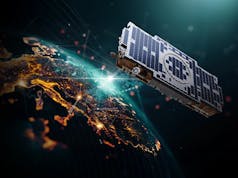
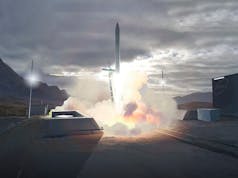


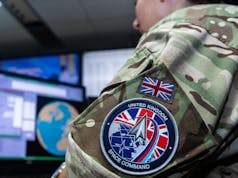
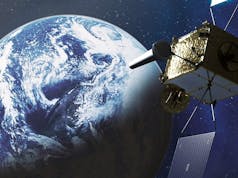
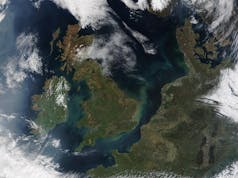


“”Earlier in the year, we reported that the UK appeared to be stepping away from building its own system.””
Actually what I see taking place, is the UK will hit the headlines that it is going to build a world beating space system. Then after 20 years of reviews and meetings they will decide to cut the first sod using Chinese money and technology. Then once the project has been ongoing for 10 years we will hear that ‘X’ will be cut , followed by ‘Y’ a few years later, but we will end up with a better system. Then we will hear of a delay, followed by another delay and then another delay. then in 2220 whilst the rest of the world has been living in space for over 100 years the British will finally get their 1960s quality space system.
Paint me down as somewhat cynical.
It would be far more productive (and cheaper) to link up with Space X/Amazon /Virgin or even the Apple guy
UK govt has already taken a 45% stake in OneWeb. Maybe OneWeb stays purely commercial, which in itself may be a significant driver for UK space industry in time possibly including UK launches, but the SpaceX Starlink network is already planning to support US military services so no inherent reason OneWeb wouldn’t.
https://www.aerosociety.com/news/oneweb-and-the-uk-a-wise-investment/
The US already expect to use LEO satellites for GPS capabilities, “Agency officials envision the Navigation Layer to provide US armed forces alternative position, navigation, and timing (A-PNT) capabilities in GPS-denied environments, the documents stated.” Along with providing advanced warning for hypersonic missiles.
https://www.janes.com/defence-news/news-detail/pentagon-solicits-proposals-for-new-hypersonic-advanced-warning-system
Glass Half Full, What they are proposing is that the LEO satellites would receive the signal from GPS satellites and then repeat it taking advantage of their higher bandwidth. Essentially a GPS satellite says ‘I am here and the time is’, the LEO satellite might receive three GPS satellites and relay all three to you on the ground and you might be able to see 50 LEO satellites each relaying info and from that you build up a picture. The system cant function without the original GPS satellites, its just a relay to help defeat jamming of the GPS wavelengths. If Britain used this we would still have to have a GPS like system or multiple ground stations with atomic clocks.
One suggested option is to use a voting/cross check system where the land, sea or air platform looks at GPS, Glonass, Galileo and BeiDou and uses a LEO network sourcing less precise location data as a sanity check against spoofing. Not sure if this is what you are describing, since the LEO network wouldn’t be relaying third party GNSS data?
This is not what the US are pursuing with SDA and probably not what the UK is pursuing either. The US are seeking an alternate to GPS, because their GPS satellites may be directly threatened in future. Russia has already been deliberately positioning their satellites close to US military satellites.
“SDA’s Navigation Layer is exploring technical areas including, but not limited to:
https://www.sda.mil/navigation/
If I recall correctly, this is because of the challenges involved in making the timing system small enough for the significantly smaller LEO satellites (compared to a GPS one). There are talks of working out smaller clocks, inlcuding ones that are potentially less accurate, but that this isn’t as much of a problem if there are so many more of them that they can correct each other more easily (not quite sure on the technicalities of it, but what I read suggested that it wouldn’t be a terrible problem).
So, there is a possibility that it could be GPS/Galileo/GLONASS independent, which would be ideal.
It wouldnt be viable as a system for UK forces if your relying on your potential enemy broadcasting to you. If the chinese, russians and Americans turn off the civilian unencrypted signal in a warzone you can no longer fuse that information to create a military level precision.
Yes the SDA is a similar system to what I was describing, the SDA relys on infrared and laser links from later Gen 3 GPS satellites and ground stations to provide navigation data. This is a proposed tertiary function. They are proposing a network of 650 satellites, the first 200 would be infra-red satellites to spot missile launches, the second 200 would be optical/radar earth observation satellites and the third batch would be kill vehicles, ASAT and Missile interceptors.
While I like the idea of this, I am concerned that we’re trying to do something rather specialised with not enough money to do it (if it’s to be a defence-only endeavor).
If we do this, it needs to be as part of the government’s well-publicised investment into British industries etc. that will have wider application than just defence. While it is certainly possible to do, I do not currently hold out much hope in the government doing it…
See my comments to Farouk above regarding OneWeb.
Thanks GHF, you make a good point. I had a bit of a glance over the OneWeb purchase when it was anounced, and I thought it was a nice step towards what I talk about here, as long as parallel investment (space port, etc.) is maintained. As you say, whether it’s kept civilian or used for military purposes as well doesn’t matter too much; as long as it is self-supporting and a seed for growth in domestic civilian and military space services then I’m happy.
I noted a couple of bits to Watchkeeper above about use of OneWeb for navigation; The article I read was a bit above my comprehension level, but it seemed to suggest that it could provide an idependent capability.
I confess to being a bit of an evangelist for a UK stake in OneWeb. Not just for the possible commercial, intellectual property generation, skilled jobs in a growth industry benefits, but also the defence and especially soft power aspects.
One of the greatest challenges for poor countries is to proliferate even modest, low cost, broadband to rural populations, even at the village level, let alone on a per family basis. The UK govt. can partner with local governments and service providers to support such services through international aid. Its not even just poor nations, many rich nations, including the US, still fail to provide such services, due to the tyranny of distance and cost undermining investment, despite subsidies.
The current and recent UK Governments are very good at press releases outlining grandiose plans to make the UK a “power” in this or that area. The UK can’t even find the funds to fully kit out one aircraft carrier with its required complement of fighters yet it somehow is going to find billions of pounds to not only design and build a space based satellite system to match GPS III but its going to start from scratch to build a launch system to put these satellites into orbit. And pigs will fly.
so… are you Russian or Korean?
This must be in relation to the OneWeb purchase. Makes sense, we can use any signal from a satellite to do positioning, it does’t have to be an atomic clock. It’s about using the OneWeb system in an innovative way.
Thus we will have sovereignty over LEO Broadband internet and positioning.
You need the atomic clock to know precisely how long the signal has taken to reach you, the more accurate the clock the more accurate the distance. You could indeed brute force emulate by using hundreds of less accurate signals and building an average though whether it will be as precise is debatable.
Crazy to waste money on a system the U.S. already provides free to the UK. The US is also developing an alternative to GPS in the case GPS is jammed, ect. Why not spend the money on more urgent needs in the UK military which there are many?
There has been a significant research effort over the years looking at other navigation technology in the event that GNSS services become unavailable. Using ‘signals of opportunity’ and advanced dead reckoning systems are the approaches I’m aware of. There may be others. So there is something to be said for avoiding an expensive commitment to a navigation technique that may be rendered obsolete in the not-too-distant future. However…I fear I’m overestimating how much thought has gone into this.
Well regardless of the amount of earlier thinking on the topic its definitely top of mind now for the US at least, per my earlier posts linking to their SDA program. As I replied to Watcherzero, its highly likely that the UK will want a system that is independent of existing services too.
Like a lot of things this Government is doing, everything is announced as “World-Beating”, Transformational”, Cutting-Edge” etc. I’d be grateful if they just bought things that worked out of the box and in sufficient quantities to matter.